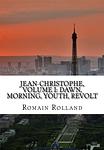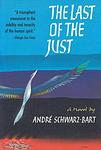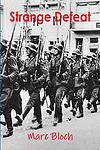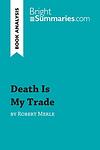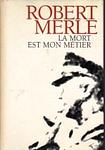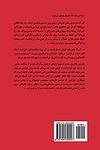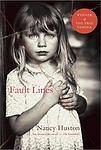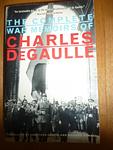The Greatest French "Germany" Books of All Time
Click to learn how this list is calculated.
This list represents a comprehensive and trusted collection of the greatest books. Developed through a specialized algorithm, it brings together 300 'best of' book lists to form a definitive guide to the world's most acclaimed books. For those interested in how these books are chosen, additional details can be found on the rankings page.
Genres
The category of "Germany" in terms of books would encompass literature that is set in or about Germany, its history, culture, people, and society. This could include works of fiction, non-fiction, memoirs, biographies, and historical accounts that explore various aspects of German life, such as the country's politics, economy, art, music, literature, and more. The category would be of interest to readers who are fascinated by Germany's rich and complex history, its contributions to world culture, and its ongoing role in shaping global affairs.
Countries
Date Range
Reading Statistics
Click the button below to see how many of these books you've read!
Download
If you're interested in downloading this list as a CSV file for use in a spreadsheet application, you can easily do so by clicking the button below. Please note that to ensure a manageable file size and faster download, the CSV will include details for only the first 500 books.
Download-
1. Candide by Voltaire
"Candide" is a satirical novel that follows the adventures of a young man, Candide, who is living a sheltered life in an Edenic paradise and being indoctrinated with Leibnizian optimism by his mentor. When he is expelled from the paradise for kissing a baron's daughter, he embarks on a journey around the world, witnessing the horrors of war, natural disasters, and human cruelty. Throughout his journey, Candide maintains his optimistic philosophy, despite the constant hardships he faces, ultimately concluding that one must cultivate their own garden, a metaphor for taking control of one's own destiny.
-
2. Cyrano de Bergerac by Edmond Rostand
"Cyrano de Bergerac" is a classic French play that tells the story of a nobleman named Cyrano, who is a talented poet and swordsman but has a very large nose. Despite being deeply in love with his cousin Roxane, Cyrano doesn't believe she could ever love him because of his appearance, so he helps his friend Christian woo her instead. Cyrano writes love letters to Roxane on behalf of Christian, and Roxane falls in love with the man she believes Christian to be. The story is a tragic tale of unrequited love, selflessness, and the power of inner beauty.
-
3. Jean Christophe by Romain Rolland
This expansive novel chronicles the life of a gifted German musician, from his early years in a Rhineland village, through his turbulent development as an artist, to his maturity and recognition as a composer. Set against the backdrop of Europe's cultural and political landscape at the turn of the 20th century, the protagonist's journey is one of passion, struggle, and the relentless pursuit of artistic freedom. Through his friendships, loves, and artistic endeavors, the narrative delves into themes of personal growth, the nature of genius, and the universal search for meaning. The protagonist's life story is a testament to the power of resilience and the indomitable spirit of the creative mind.
-
4. The Last Of The Just by André Schwarz-Bart
The book is a poignant and harrowing narrative that follows the tragic history of the Levy family over eight centuries, focusing on the lineage of the "Just Men" - thirty-six pure souls in each generation said to bear the sufferings of the world. The story culminates with the life of Ernie Levy, who, despite the encroaching horrors of the Holocaust, maintains an unwavering faith in human goodness. His journey through the ghettos and concentration camps of World War II Europe is a testament to the endurance of the human spirit in the face of unspeakable evil, as he upholds his family's legacy of compassion until his last breath.
-
5. Strange Defeat by Marc Bloch
"Strange Defeat" is a wartime memoir written by a French historian who served as a soldier during World War II. In the book, the author critically analyzes the reasons behind the swift and shocking fall of France to Germany in 1940. The author attributes the defeat to the outdated strategies and poor leadership of the French military and government, and also highlights the social and political issues that plagued France at the time. The book is not only a personal account but also a profound critique of French society and its institutions.
-
6. Death Is My Trade by Robert Merle
The book is a fictionalized account of the life of Rudolf Höss, the commandant of Auschwitz concentration camp during World War II. It delves into the protagonist's personal history, tracing his journey from a troubled childhood through his rise in the ranks of the SS. The narrative provides a chilling insight into the bureaucratic and ideological mechanisms that led to the Holocaust, exploring the protagonist's role in the administration of mass murder and the psychological detachment that enabled him to view the extermination of millions as a job. The story is a harrowing examination of the banality of evil and the moral complexities of obedience to authority.
-
7. La Mort Est Mon Métier by Robert Merle
The book is a fictionalized account of the life of Rudolf Höss, the commandant of Auschwitz concentration camp during World War II. It delves into the psychological and moral journey of the protagonist, who is portrayed as a man deeply committed to duty and efficiency, as he rises through the ranks of the SS. The narrative provides a chilling insight into the banality of evil, exploring how an ordinary man can become a willing participant in one of history's most horrific genocides. Through the protagonist's perspective, the novel examines the mechanisms of Nazi ideology and the bureaucratic machinery of the Holocaust, ultimately questioning the nature of obedience and the moral responsibility of individuals within a totalitarian regime.
-
8. Coup De Grace by Marguerite Yourcenar
Set against the backdrop of the Russian Civil War, the novel explores the complex relationships and moral dilemmas of a group of aristocratic officers fighting for the White Army. The protagonist, an emotionally detached soldier, finds himself entangled in a tragic love triangle with a fellow officer and a young Baltic woman who sympathizes with the Bolsheviks. As the war rages on, the protagonist must confront his own feelings of passion, loyalty, and the brutal realities of a conflict that challenges the very essence of honor and humanity. The narrative culminates in a poignant act that serves as both a personal and political statement, reflecting the disillusionment and devastation of a world in upheaval.
-
9. La Part De L'autre by Éric-Emmanuel Schmitt
The book presents an intriguing alternate history, exploring two parallel narratives: one in which Adolf Hitler is accepted into the Academy of Fine Arts in Vienna, leading to a life as a modest artist, and another where he is rejected, setting him on the path to becoming the Führer of Nazi Germany. This thought-provoking exploration examines the impact of seemingly small events on the course of history and the nature of evil, as it juxtaposes the life Hitler could have led with the infamous one he did, raising questions about destiny, choice, and the inherent potential for good and evil within us all.
-
10. The Kindly Ones by Jonathan Littell
The book in question is a fictional memoir of a former SS intelligence officer who recounts his experiences during World War II, offering a detailed and disturbing insight into the machinery of the Nazi genocide from the perspective of a perpetrator. The narrative delves into the protagonist's complex psychology and his role in the atrocities committed during the Holocaust, as well as his post-war life. The novel is notable for its extensive historical research, moral ambiguity, and the controversial and unflinching portrayal of the horrors of the time.
-
11. Fault Lines by Nancy Huston
"Fault Lines" is a novel that delves into the complex layers of family history and the impact of past traumas on the present. The narrative unfolds through the eyes of four different children from successive generations of the same family, each chapter moving back in time to reveal the secrets and challenges faced by their ancestors. The story explores themes of identity, memory, and the inherited nature of suffering, as the protagonists grapple with the legacies of war, displacement, and personal tragedy that ripple through their lineage. The novel's unique structure and poignant storytelling invite readers to reflect on how the fault lines of history can shape individual lives and relationships across generations.
-
12. The Complete War Memoirs Of Charles De Gaulle by Charles De Gaulle
"The Complete War Memoirs of Charles de Gaulle" is a comprehensive autobiographical account by the French general and statesman who led the Free French Forces during World War II. The memoirs detail his experiences and reflections from the fall of France, his leadership in exile, through to the liberation of Paris. De Gaulle provides in-depth insights into the political and military strategies of the Allies, the internal dynamics of the French Resistance, and the broader implications of the war on France and Europe. His narrative combines a detailed historical record with personal observations, revealing his enduring commitment to French sovereignty and his vision for the nation's future.
-
13. The Kindly One by Jonathan Littell
"The Kindly Ones" is a controversial and provocative novel that follows the life of a former SS officer, who is of French and German descent, during and after World War II. The narrative is a first-person account of the atrocities he committed and witnessed during the Holocaust, presenting a chilling exploration of the human capacity for evil. The story also delves into his post-war life, his struggle with guilt, and his attempts to rationalize his actions. The novel is a profound and disturbing examination of the darkest aspects of human nature, history, and memory.
Reading Statistics
Click the button below to see how many of these books you've read!
Download
If you're interested in downloading this list as a CSV file for use in a spreadsheet application, you can easily do so by clicking the button below. Please note that to ensure a manageable file size and faster download, the CSV will include details for only the first 500 books.
Download

